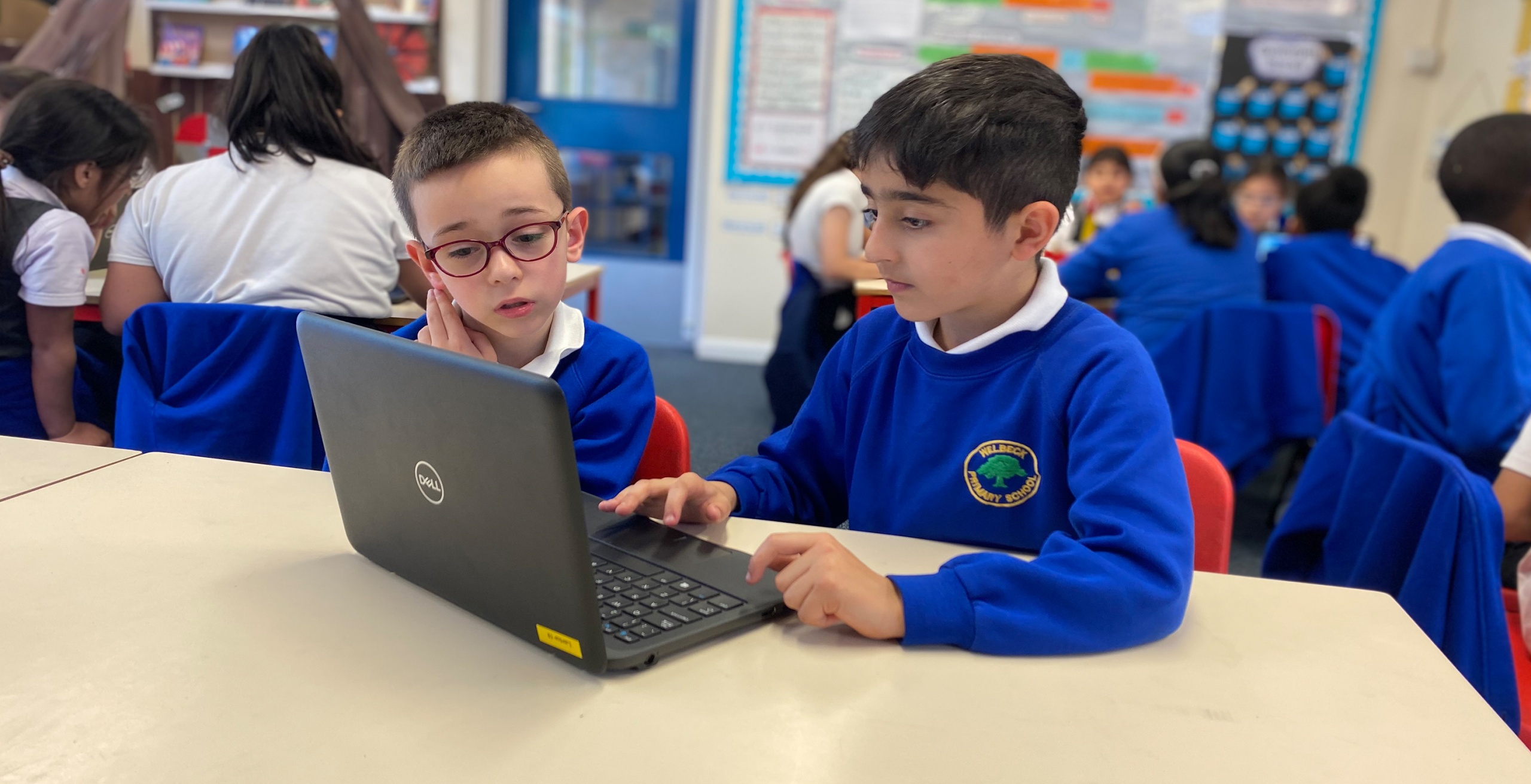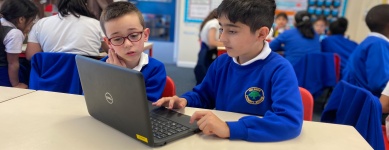At Welbeck Primary we use our bespoke scheme of work which is linked to our creative curriculum, tailored to maximise all children’s skills and knowledge, as the basis of our weekly Computing lessons. Each half term covers a different focus, shared by all the year groups but with progressively more complex outcomes and contexts.
In addition to this, our Gifted and Talented pupils have their skills developed through the Digital Ambassador Programme led by our full time ICT Technician, Carl.
At Welbeck Primary, our Computing Curriculum is split into 6 strands: Using Technology/Using the Internet, Digital Media, Creating and Publishing, Communication & Collaboration, Programming and Control, Modelling and Simulation. These strands are taught in each year group across the year to develop skills and knowledge progressively throughout the school.
- Using Technology/Using the Internet covers how different technology can support children’s learning. Children are also taught how to use the internet safely and effectively.
- Digital Media gives the opportunity to develop children’s multimedia skills such as film making and stop motion animation.
- Creating and Publishing develops desktop publishing skills of combing digital text and graphics.
- Communication and Collaboration teaches the advantages of digital communication such as email and ways of working collectively using technology collaboratively.
- Programming and Control gives all children the opportunity to learn basic computer programming, from simple problem solving and floor robots such as Dot and Dash and Bee-bots in Foundation and Key Stage 1, right up to creating on screen computer games and learning programming languages by Year 6, using programming software such as Scratch, Tynker and Kodu.
- Modelling and Simulation allows children to study or try things that would be difficult or impossible in real life. Children learn how to use technology to simulate scenarios or events and how to make models.
E-Safety is taught as a lesson half termly as well as during every weekly Computing lesson. This ensures every child has the confidence when using computers and the internet, to know what to do if they come across something either inappropriate or uncomfortable.
We are proud of our Computing Curriculum and to have been recognised by NAACE as a leading school in ICT. We have also been attending Nottingham School Trust termly computing workshops with 38 schools.


